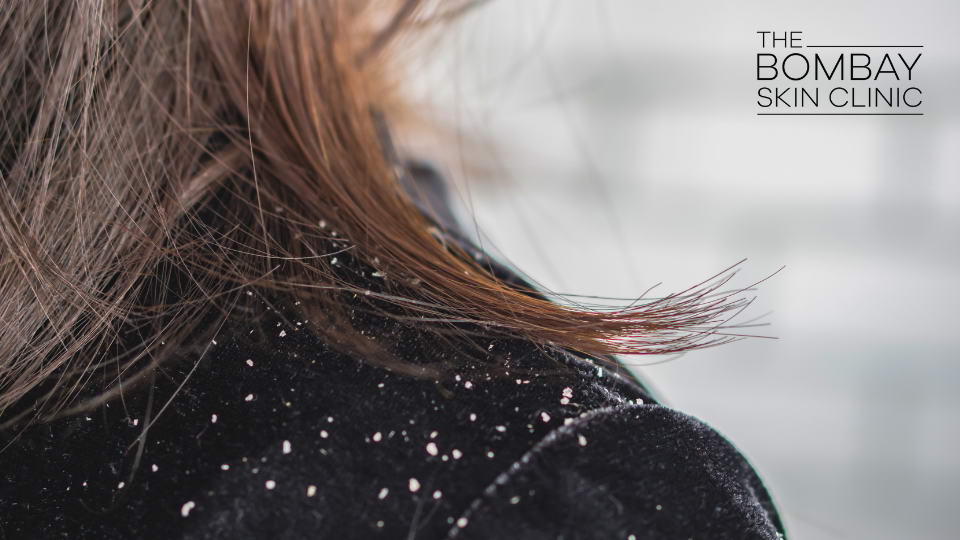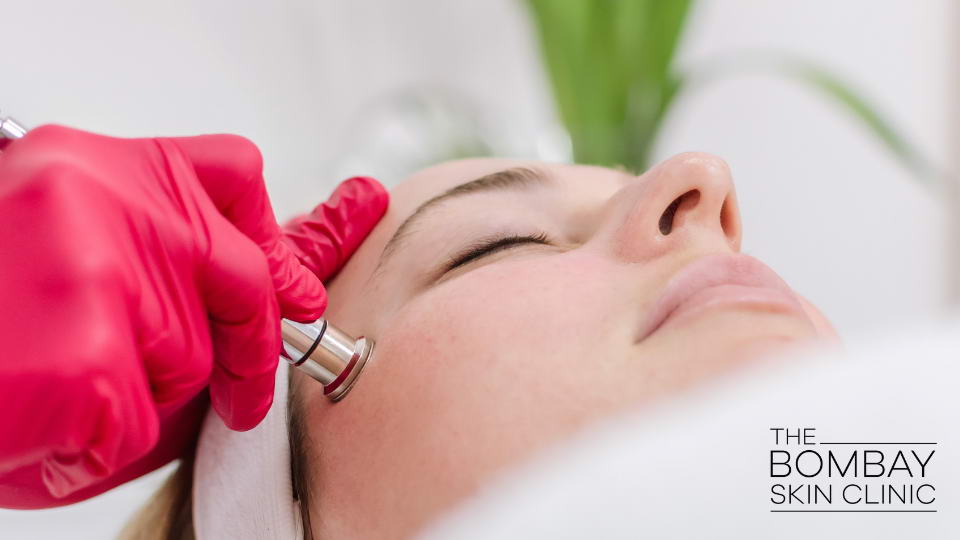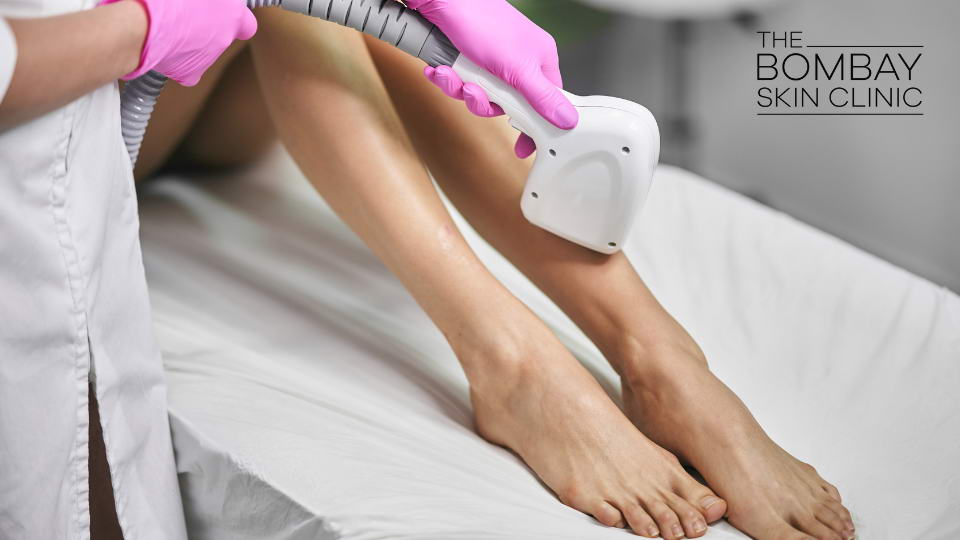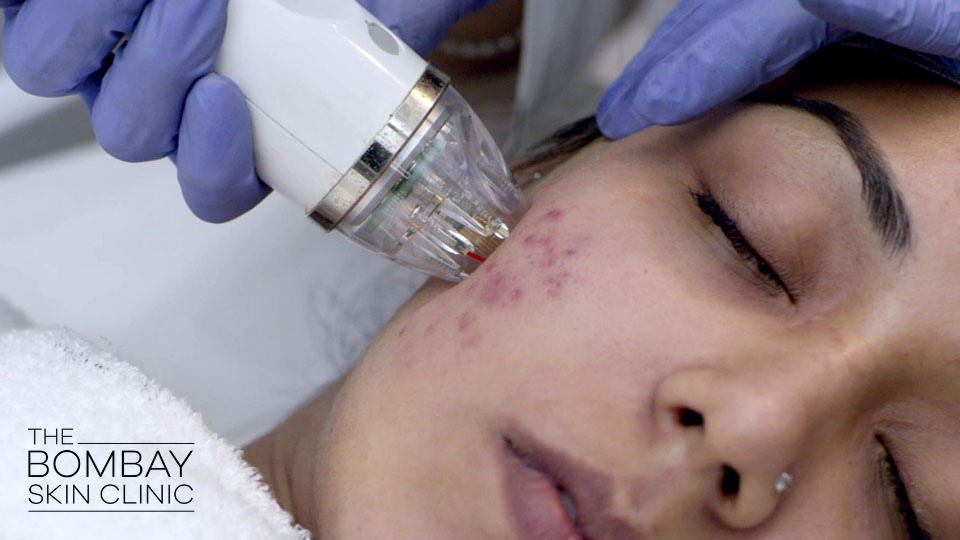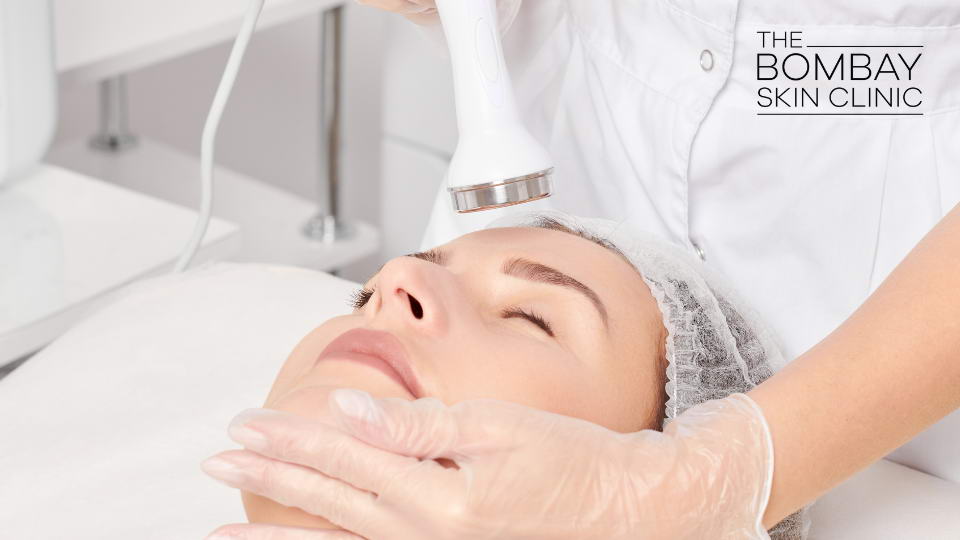Overview | Dandruff Treatments | Lifestyle Changes | Symptoms and Causes | Risk Factors | Seeing a Dermatologist
Dandruff is a condition that refers to the flaking off or scaling of the skin on the scalp. This can happen due to a variety of reasons. Dandruff can cause great embarrassment in public situations as good hair and skin care form an important aspect of grooming. Now, you do not need to worry about being impacted by this condition alone. The statistics show how dandruff is so common that as much as 50% of the population is impacted by it at some point during their life and they do face significant discomfort. And, at The Bombay Skin Clinic, we understand the importance of good grooming as a part of a healthy outlook. To help you out, here is all you need to know on dandruff treatment for hair.
Dandruff treatments
Modern medicine has ensured that dandruff treatment is highly effective. At The Bombay Skin Clinic, we customize hair treatment for each patient as per their unique medical needs. In many cases, the ideal care involves a combination of various medical products handpicked by our team of high-qualified professionals led by Dr. Batul Patel.
Here is a look at dandruff treatment at The Bombay Skin Clinic.
- Creams and sprays – Prescription-based cortisone medicines are often the first-line treatment for dandruff. These need to be prescribed by a dermatologist. They are usually products that you can rub on the affected areas and leave them. Anti-dandruff creams are usually clear or white in appearance. A topical anti-yeast lotion may also be prescribed. Other options for treatment include corticosteroid lotions and creams.
At The Bombay Skin Clinic, we also use the bio oxy spray, which when allowed into the dermis can effectively tackle dandruff.
Anti-dandruff creams and sprays work towards tackling and minimizing inflammation of the affected areas. As such, they provide immense relief to the patient. When applied correctly, they do not leave the hair looking limp. Our patients at the clinic have experienced immense relief from their dandruff problems with the application of the prescribed creams. These creams are safe and only recommended in the exact dosage that a patient needs as per his/her unique requirements. - Shampoos – One of the most important dandruff treatment methods is through the use of shampoos. The most-effective anti-dandruff shampoos are the ones that are recommended by a qualified dermatologist, as these truly tackle the problem from the root.
Anti-dandruff shampoos have varying ingredients, which is why it is best to get them recommended by your doctor. Some of the most common ingredients in an anti-dandruff shampoo include Pyrithione zinc, Salicylic acid, Selenium sulfide, and Coal tar preparations. Tea tree oil is a natural ingredient that is preferred in many anti-dandruff shampoos. These shampoos work towards fighting fungal infection and also reducing dryness and flaking of the scalp effectively. Harvard Health cautions against the use of shampoos containing coal tar for people who have light-colored hair, as it can cause discoloration. It is important to note that patients may need to shift between shampoos depending on what ingredients work for them. At our clinic, we recommend the shampoo best suited to your needs and monitor progress as you use the product for the best and real-time results. - Oral medications – Not many are aware that dandruff treatment for hair also involves the prescription of oral medications. One of these is the prescription of zinc. Zinc is an essential mineral. The deficiency of this mineral can lead to dandruff. While children require an approximate of 2 mg of zinc per day, an adult would require anywhere between 9mg to 11mg. Pyrithione zinc is an important ingredient in anti-dandruff shampoos. As an added line of treatment, we also recommend supplements that will help tackle zinc deficiency from within. We always advocate treating any hair and skin condition holistically and not just at the superficial level for the best results.
- Dandruff Freedom Program – At The Bombay Skin Clinic, we have curated our own Dandruff Freedom Program to truly bring to you the best in dandruff treatment for hair. This specially formulated treatment involves a combination of laser therapy, photodynamic therapy, oxygen therapy, and electro modulation system treatment for the ultimate cure for dandruff-impacted hair. The treatment helps to improve blood circulation, stimulate cell metabolism, control oil secretion, and rejuvenate the hair follicle. In particular, blue narrow spectrum light is known to help in cases of seborrheic hair loss.
Using high technology, a single jet infuses oxygen onto the scalp. A triple jet promotes dermal infusion of oxygen for instant cell oxygenation. This is followed by a hair mask composite treatment. Next, a gold PDT comb with blue light is used to combat dandruff. The treatment is rounded off with the bio oxy spray.
Lifestyle changes
As part of our holistic approach to healing, we also counsel our patients on the necessary steps that they need to take in dandruff treatment. Some of the necessary lifestyle changes that need to be made include:
- Limit the intake of fatty foods, especially chocolate and dairy products
- Reduce stress through meditation and yoga
- Avoid hairstyles such as extensions and braids that can lead to dandruff
- Apply natural oils such as jojoba and almond to nourish your scalp
- Wash your hair more frequently if you sweat a lot or live in a humid climate
We, at The Bombay Skin Clinic, take great pride in educating and informing our patients. Let’s take a look at some important medical information on the causes, symptoms, and other conditions associated with dandruff.
Symptoms
According to Harvard Health Publishing, dandruff is a mild form of the condition known as seborrheic dermatitis. You have dandruff if you notice any of the following:
- Whitish flakes on your shoulder
- Constant itching on the scalp
- Rash on the ears, eyebrow, beard, and chest
- Eczema on the ear
Causes and triggers
Dandruff is mainly linked to an increase in oil secretion and skin yeasts. The main fungus responsible for dandruff is Malassezia. This condition can also arise due to a lack of proper skin and hair hygiene and excessive stress. Severe dandruff is usually a symptom in itself of more serious illnesses such as an autoimmune condition and Parkinson’s disease.
Risk factors
Dandruff has been associated with the following risk factors:
- Young adulthood
- Male hormones leading to men being more prone
- Certain diseases such as Parkinson’s disease, autoimmune conditions, and HIV
Seborrheic dermatitis
Seborrheic dermatitis is a skin condition that is marked by the appearance of a reddish, greasy rash. At times, this rash can have a white surface. Seborrheic dermatitis is often hereditary. According to John Hopkins Medicine, this condition can also be caused by hormonal problems as well as very cold weather. Seborrheic dermatitis during adulthood is an intermittent condition and is called dandruff.
It is important to note that seborrheic dermatitis can resemble other skin conditions. Only a qualified dermatologist can do a proper diagnosis.
Cradle cap
Cradle cap is a form of seborrheic dermatitis. It affects babies on their scalp. Cradle cap is harmless and usually goes away by itself. At times, this rash can also impact the diaper area. The American Academy of Dermatology notes that seborrheic dermatitis is often mistaken for diaper rash. Cradle cap usually goes away between the ages of six months to one year.
Seeing a dermatologist
In most cases, washing your hair with an anti-dandruff shampoo should take care of mild cases of dandruff. If you do not notice a visible improvement soon enough, it is best to seek the professional diagnosis of a dermatologist.
Questions for the doctor
When undergoing dandruff treatment, the proper exchange of knowledge is essential in getting the most out of your treatment. Here are some questions that you must consider asking your doctor:
- Are there any home remedies that I should follow along with my treatment?
- Can dandruff spread to anyone else I live with at home?
- Is dandruff causing my hair loss?
- How long until I see results from my dandruff treatment?
Closing paragraph
Dandruff in itself does not lead to hair loss. But, we caution you that constant itching can cause your hair to weaken and break off. So, if you have been impacted by this hair condition, do not hesitate to seek immediate treatment. The sooner you get professional help from a dermatologist, the better the results for your overall well-being.
References
- American Academy of Dermatology: https://www.aad.org/public/diseases/a-z/seborrheic-dermatitis-overview
- Harvard Health Publishing: https://www.health.harvard.edu/skin-and-hair/what-is-the-best-way-to-treat-severe-dandruff
- Johns Hopkins Medicine: https://www.hopkinsmedicine.org/health/conditions-and-diseases/seborrheic-dermatitis

